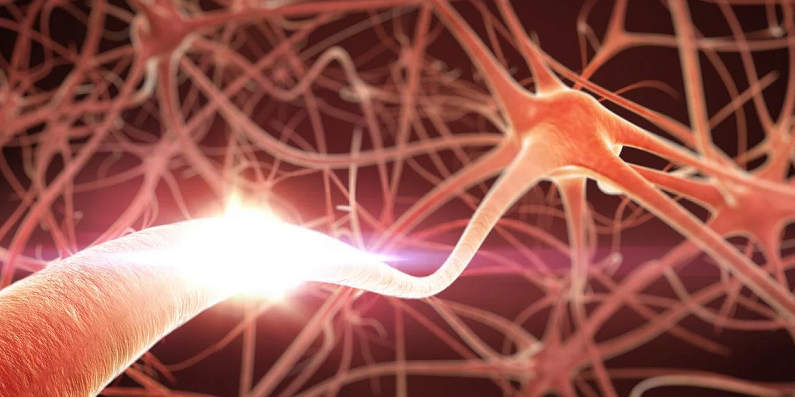
In the intricate labyrinth of the human brain, every molecule and neurotransmitter plays a crucial role in shaping our thoughts, actions, and overall well-being. Among these, orexins, also known as hypocretins, have emerged as significant players in the complex interplay between hormonal regulation and cognitive functions. Discovered in the late 1990s, orexins are neuropeptides that primarily regulate wakefulness, appetite, and energy expenditure. However, their influence extends far beyond these basic physiological roles, intricately intertwining with various aspects of cognitive health, including memory, learning, attention, and decision-making.
Contents
Introduction to Orexins
The human brain, a complex network of neurons and neurotransmitters, orchestrates every thought, movement, and sensation we experience. Within this intricate system, orexins, a group of neuropeptides, have emerged as key players, especially in the context of how hormonal regulation intersects with cognitive functions.
Definition and Origin of Orexins
In the landscape of neuroscience, the discovery of orexins represents a landmark achievement, unveiling new pathways through which our brains regulate sleep, hunger, and energy levels, and how these physiological processes are intertwined with our cognitive capabilities.
Discovery and Naming
Uncovered in the late 1990s, orexins have revolutionized our understanding of sleep regulation and its broader implications on cognitive functions. The term “orexin” is derived from “orexis,” the Greek word for appetite, indicating its initial association with feeding behavior. However, ongoing research continues to uncover its expansive influence on cognitive processes.
Chemical Structure and Types
Orexins are synthesized from a single precursor protein that splits to form two peptides: orexin-A and orexin-B. These peptides, differing in amino acid sequence and function, play critical roles in the body’s regulatory mechanisms, with orexin-A notably impacting wakefulness and cognitive activities.
Overview of Cognitive Functions
Cognitive functions encompass the brain’s ability to process information, reason, remember, and navigate social interactions. These capabilities are foundational to learning, decision-making, and engaging with our environment.
Definition and Importance
The essence of cognitive functions lies in their ability to enable information processing, decision-making, and interaction with our surroundings. They are crucial for academic success, professional performance, social interactions, and overall life satisfaction [1].
Main Cognitive Processes Affected by Orexins
Emerging research has elucidated orexins’ significant role in various cognitive domains, notably in enhancing alertness, aiding in memory consolidation, and boosting learning efficiency. Delving into the mechanisms by which orexins influence these processes offers insights into potential treatments for cognitive disorders.

Understanding Orexins
Orexins, a relatively recent discovery in the field of neurobiology, have quickly become a subject of intense research due to their profound impact on a wide array of physiological and cognitive functions. These neuropeptides, originating from a specific part of the brain, play a crucial role in regulating wakefulness, appetite, and energy levels. Their influence extends to the realm of cognitive functions, affecting memory, learning, and attention, among others.
Biological Role of Orexins
Orexins serve as key regulators in the body, influencing various physiological states and behaviors. Their primary roles encompass the regulation of sleep-wake cycles, appetite control, and the body’s energy balance.
Regulation of Sleep and Wakefulness
Orexins are pivotal in maintaining the balance between sleep and wakefulness, acting as a wake-promoting agent. They stimulate areas of the brain responsible for alertness and reduce the propensity for sleep. By binding to orexin receptors located in key regions that control sleep and arousal, these neuropeptides ensure a stable transition between different states of consciousness.
Appetite and Energy Expenditure
Beyond their role in sleep regulation, orexins also influence feeding behavior and energy homeostasis. They are involved in the stimulation of appetite and can increase energy expenditure, playing a significant role in the body’s metabolism. This dual function helps to maintain energy balance and body weight, illustrating the versatility of orexins in regulating vital physiological processes.
Orexins and the Brain
The central nervous system is the primary arena where orexins exert their influence, particularly in regions involved in regulating arousal, appetite, and cognitive functions.
Orexin Neurons: Location and Mechanism
Orexin-producing neurons are located in the lateral hypothalamus, a brain region historically associated with hunger and sleep regulation. These neurons project to various parts of the brain, including areas involved in alertness, stress response, and reward systems, thereby influencing a wide range of behaviors and physiological responses. The release of orexins and their interaction with orexin receptors facilitates communication between different brain regions, modulating arousal, appetite, and energy levels [2].
Interaction with Other Neurotransmitters
The impact of orexins on cognitive functions is partly mediated through their interaction with other neurotransmitters. Orexins modulate the activity of several key neurotransmitters, including serotonin, norepinephrine, and dopamine, which are critical for mood regulation, alertness, and motivation. This modulation enhances cognitive processes such as learning, memory, and decision-making by optimizing the brain’s arousal state and attentional focus.
Orexins and Cognitive Functions
The intricate dance between orexins and cognitive functions is a testament to the complexity of the human brain. As we delve deeper into the neurobiological underpinnings of our cognitive capabilities, the role of orexins emerges as a critical piece of the puzzle. These neuropeptides, beyond their primary functions in regulating sleep and appetite, exert a profound influence on various aspects of cognitive health. From enhancing memory and learning to improving attention and executive functions, orexins play a pivotal role in optimizing our mental processes.
Impact on Memory and Learning
Memory and learning are fundamental components of cognitive function, enabling us to encode, store, and retrieve information. Orexins contribute significantly to these processes, facilitating the mechanisms underlying memory consolidation and learning efficiency.
Enhancement of Memory Consolidation
Orexins have been shown to play a crucial role in memory consolidation, the process by which short-term memories are transformed into long-lasting ones. By promoting wakefulness and attention, orexins ensure an optimal arousal state, which is conducive to the encoding and storage of new information. This function is particularly evident in studies where the activation of orexin receptors has been linked to improved performance in memory tasks.
Facilitation of Learning Efficiency
Similarly, orexins enhance learning efficiency by modulating the brain’s arousal state. An optimal level of arousal, facilitated by orexins, is essential for effective learning, as it allows for better focus and engagement with the learning material. The ability of orexins to influence neurotransmitter systems related to reward and motivation also plays a role in learning, by reinforcing behaviors and enhancing the acquisition of new skills and knowledge.
Influence on Attention and Executive Functions
Attention and executive functions are critical for decision-making, problem-solving, and the overall management of cognitive tasks. Orexins contribute to the regulation of these cognitive domains, ensuring that we can effectively focus, process information, and execute complex cognitive operations.
Enhancement of Attentional Processes
Orexins directly influence the brain’s attentional systems, promoting heightened alertness and the ability to sustain focus over prolonged periods. This is particularly important in environments where constant attention and vigilance are required. By activating orexin receptors in key brain areas associated with attention, orexins help maintain an alert state, enabling better performance on tasks requiring sustained attention [3].
Improvement of Executive Functions
Executive functions, encompassing planning, flexibility, and inhibitory control, are also positively influenced by orexins. Through their action on the prefrontal cortex, a region of the brain involved in higher-order cognitive processes, orexins facilitate cognitive flexibility and the ability to adapt to changing environments or rules. This effect is crucial for problem-solving and decision-making, highlighting the role of orexins in supporting complex cognitive operations.
Therapeutic Implications for Cognitive Disorders
The relationship between orexins and cognitive functions opens new avenues for therapeutic interventions in cognitive disorders. By targeting orexin systems, it may be possible to alleviate symptoms of conditions characterized by cognitive deficits, such as Alzheimer’s disease, ADHD, and narcolepsy, among others.
Potential in Treating Alzheimer’s Disease
In Alzheimer’s disease, where memory loss and cognitive decline are prominent, modulating orexin levels could potentially enhance cognitive performance and slow disease progression. The role of orexins in memory consolidation and learning provides a promising target for therapeutic strategies aimed at improving the quality of life for individuals affected by this condition.
Applications in ADHD and Narcolepsy
Similarly, in conditions like ADHD and narcolepsy, where attentional deficits and excessive daytime sleepiness are significant challenges, orexin-based therapies could offer new hope. By enhancing wakefulness and attentional processes, treatments targeting the orexin system have the potential to improve symptoms and support cognitive functioning in affected individuals.

Orexin Deficiency and Cognitive Disorders
The significance of orexins extends beyond their facilitative role in cognitive functions; a deficiency in these neuropeptides has been linked to several cognitive disorders, underscoring their vital contribution to brain health. Orexin deficiency can lead to disruptions in sleep-wake cycles, impaired cognitive functions, and increased susceptibility to neurological conditions.
Narcolepsy and Sleep Disorders
Narcolepsy, a chronic sleep disorder characterized by overwhelming daytime drowsiness and sudden attacks of sleep, is one of the most direct manifestations of orexin deficiency. This condition highlights the critical role of orexins in regulating sleep and wakefulness, and its study has provided invaluable insights into the neurochemical mechanisms underlying sleep regulation [4].
Role in Narcolepsy
Patients with narcolepsy often exhibit significantly reduced levels of orexins in the brain, leading to the hallmark symptoms of the disorder, including cataplexy (a sudden loss of muscle tone triggered by strong emotions) and fragmented sleep patterns. The link between orexin deficiency and narcolepsy underscores the neuropeptides’ essential role in maintaining alertness and stabilizing sleep states.
Implications for Sleep Quality
Beyond narcolepsy, orexin deficiency has broader implications for sleep quality and its consequent impact on cognitive health. Poor sleep quality, influenced by reduced orexin levels, can lead to deficits in memory, attention, and executive function, highlighting the importance of orexins in cognitive resilience and mental performance.
Alzheimer’s Disease and Neurodegeneration
The connection between orexin deficiency and neurodegenerative diseases, particularly Alzheimer’s disease, has emerged as a significant area of research. This link provides insight into the potential mechanisms through which orexins may influence cognitive decline and offers new avenues for therapeutic intervention.
Impact on Alzheimer’s Disease
Emerging evidence suggests that orexin deficiency may exacerbate the progression of Alzheimer’s disease, potentially through disruptions in sleep patterns that impair cognitive function and memory consolidation. Furthermore, orexins may have a direct role in modulating the pathological processes associated with Alzheimer’s disease, including the accumulation of amyloid-beta plaques and tau proteins, which are hallmarks of the condition.
Role in Neurodegenerative Processes
The relationship between orexin levels and neurodegeneration extends beyond Alzheimer’s disease to include other forms of cognitive impairment. Research indicates that orexin deficiency may contribute to the pathophysiology of various neurodegenerative conditions, affecting neuronal health, synaptic function, and neuroinflammation. These findings underscore the potential of orexin-based therapies to mitigate neurodegenerative processes and support cognitive function [5].
Other Cognitive Impairments
Orexin deficiency is also associated with a range of other cognitive impairments, further illustrating the neuropeptides’ central role in cognitive health.
Attention Deficit Hyperactivity Disorder (ADHD)
In ADHD, characterized by inattention, hyperactivity, and impulsivity, orexin levels may play a regulatory role. While the precise relationship between orexin deficiency and ADHD remains an area of ongoing research, the potential impact of orexins on attentional processes and arousal suggests that they could be a significant factor in the disorder.
Depression and Anxiety Disorders
Similarly, the link between orexin deficiency and mood disorders such as depression and anxiety highlights the neuropeptides’ influence on emotional regulation and stress response. Orexins’ interaction with neurotransmitter systems involved in mood regulation suggests that modulating orexin levels could offer therapeutic benefits for individuals experiencing these conditions.
References
[1] Neurobiology of the Orexin System
[2] Sleep, Orexin and Cognition
[3] Orexin System: The Key for a Healthy Life
[4] Orexin-A concentrations are related with cognitive deficits in anorexia nervosa
[5] Orexins

